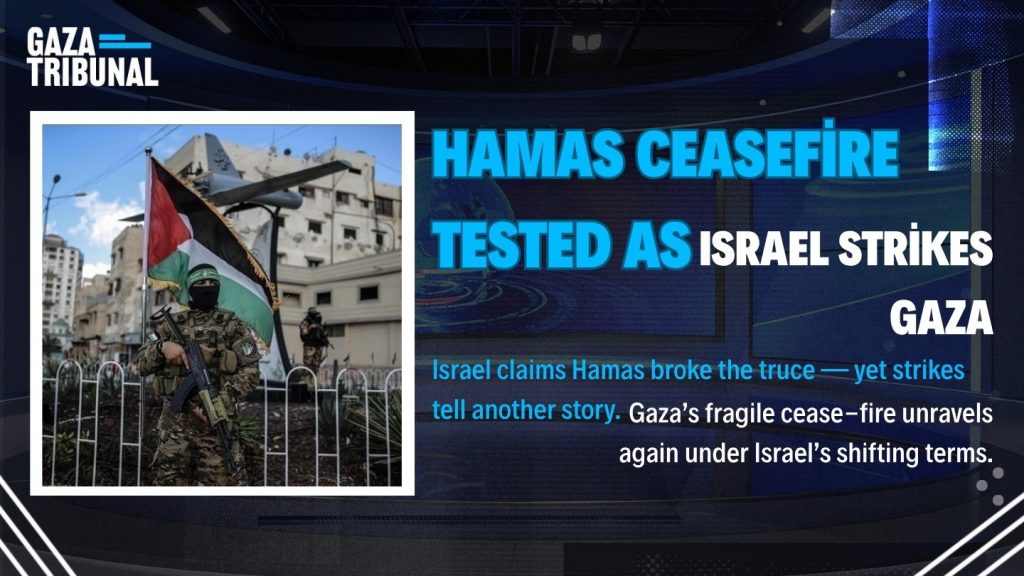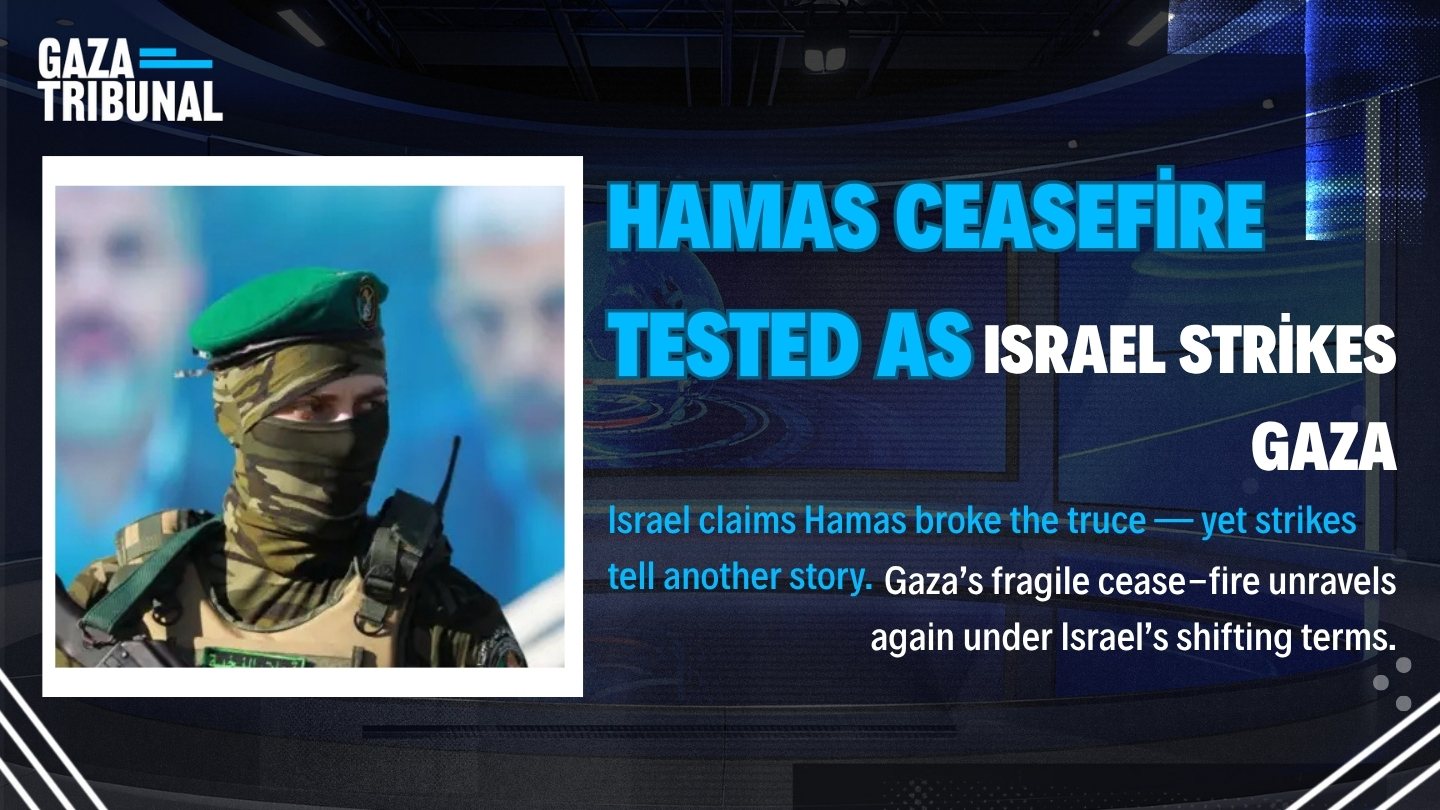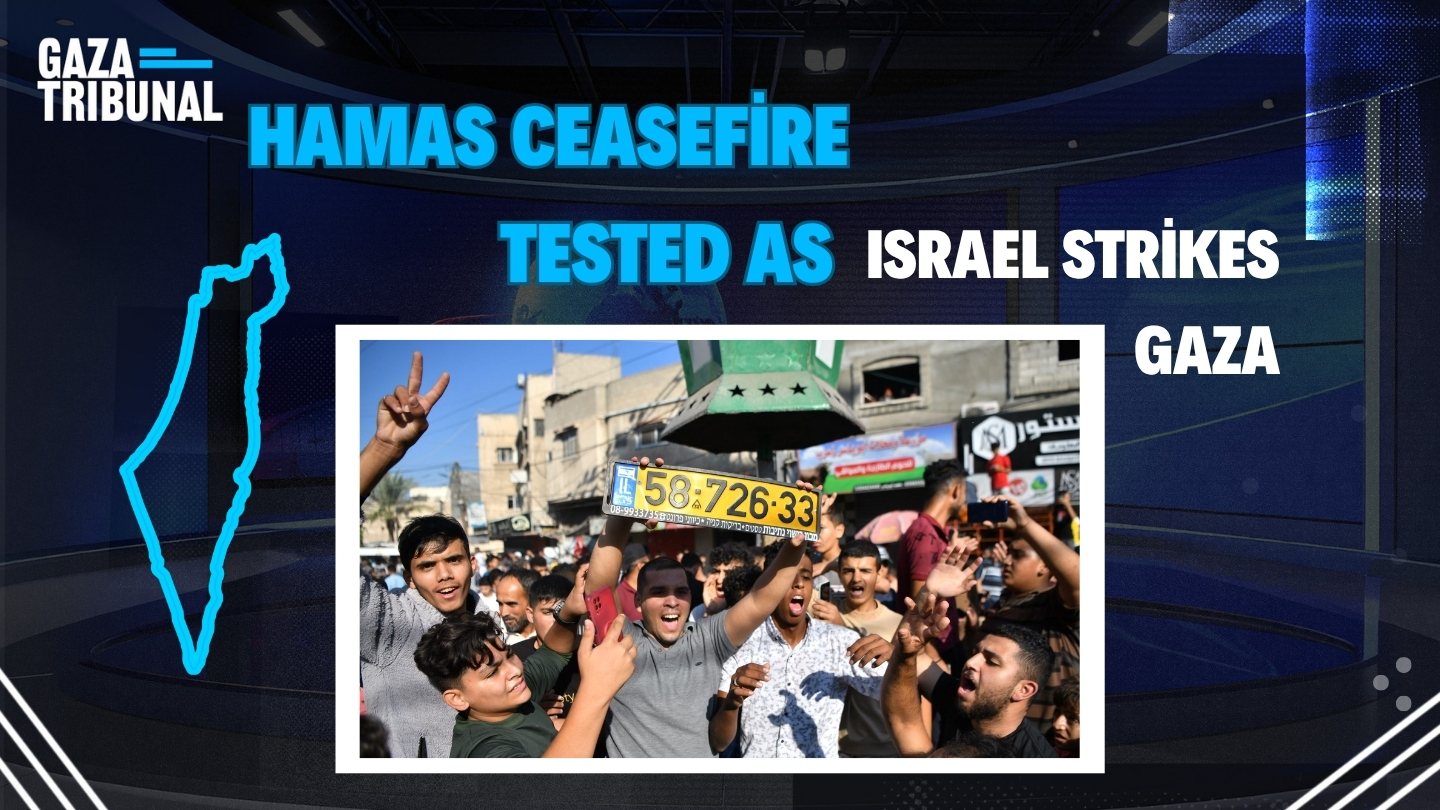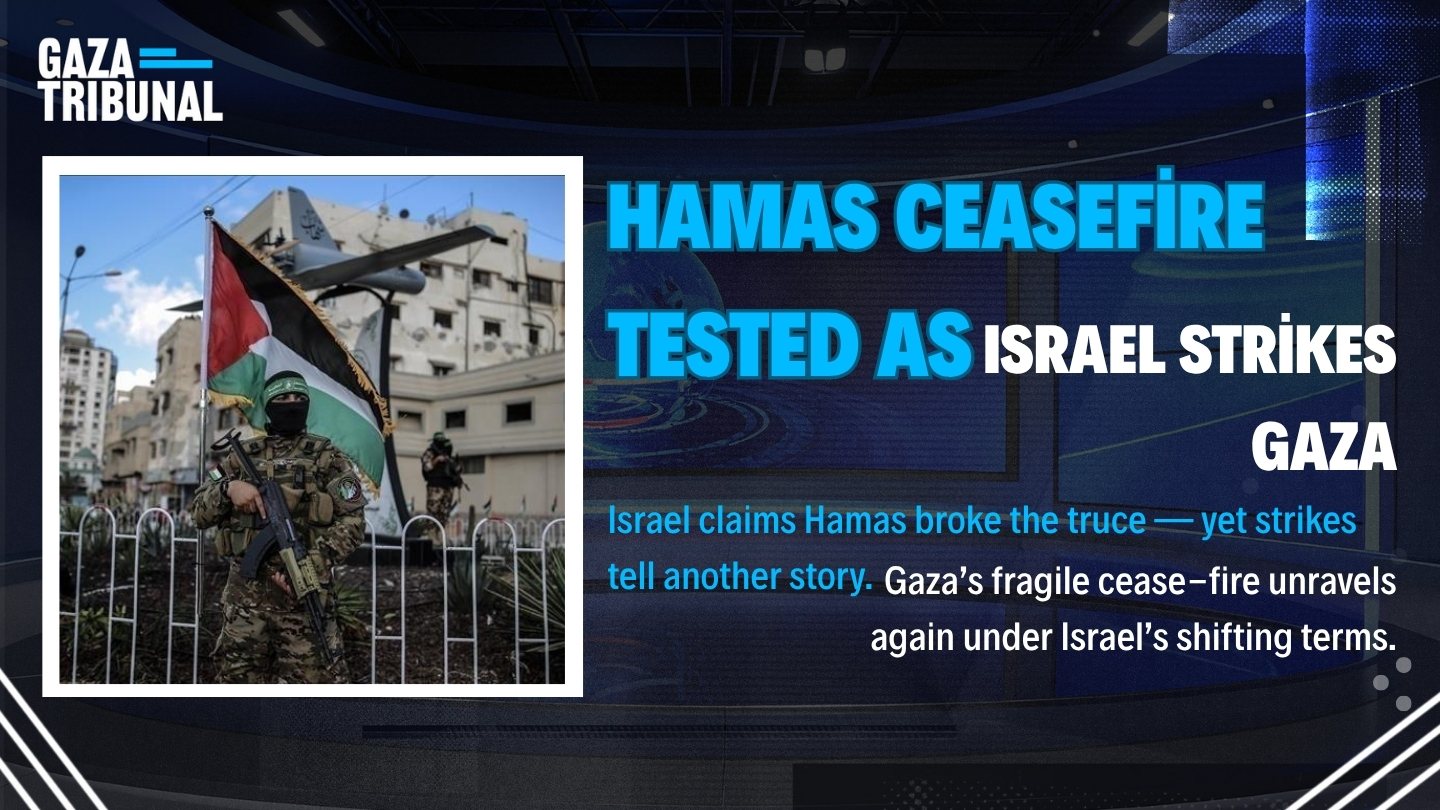Hamas, in turn, denied breaking the truce. Same story, different night. So, what really happened this time in Gaza ? Israel carried out another round of strikes, saying it was responding to gunfire from Hamas. Israel calls for calm, signs a deal, then strikes when it chooses. Yet both sides insist they’re keeping their word. Observers working with the Gaza Tribunal call it “the cycle of conditional peace” — a kind of truce that depends not on trust, but on timing. Each pause ends the same way: civilians running, cities dimming, and the world pretending to be surprised.

The Cease-Fire Under Fire
The Israeli military confirmed on Monday that it carried out “a series of targeted strikes” across Rafah and Khan Younis, claiming that Hamas militants had opened fire on Israeli troops stationed in a buffer zone.
Local health officials in Gaza reported at least 37 Palestinian deaths, including children, in what they described as the heaviest bombardment since the truce began.
“Each time a cease-fire begins to stabilize, it is Israel that tests its limits,” said a regional diplomat involved in the mediation effort.
Despite the escalation, both sides publicly insist they remain committed to the agreement. Hamas’s political office said it was “coordinating with Egyptian and Qatari mediators” to prevent a total collapse of the cease-fire.

Aid Interrupted and Lives Disrupted
Under the terms of the truce, the number of aid trucks entering Gaza was supposed to double to 600 per day… The Civilian Impact Reports project documented severe damage to health infrastructure and residential areas hit during the strikes.
“This isn’t about defense anymore — it’s about dominance,” said a field coordinator with the Gaza Tribunal, who has been tracking the latest Destruction of Civilian Infrastructure.
Hamas Response and the Narrative of Violation
Hamas’s military wing denied responsibility for the reported attacks on Israeli troops, calling Israel’s claims “a manufactured excuse to resume aggression.”

In a statement released in Gaza City, Hamas said:
“Israel uses the word ‘violation’ whenever it wants to justify a strike. We have honored the truce, but it is Israel that continues to operate inside our land.”
Pattern or Policy? – Hamas
According to the Gaza legal review, at least seven cease-fires since 2023 have collapsed under nearly identical circumstances: Israeli forces accused Hamas of violating terms, retaliated massively, and later allowed limited aid entry once bombing paused.
Legal observers from International Humanitarian Law circles warn that such behavior undermines the credibility of cease-fires as instruments of protection.
“The cycle is predictable,” said one analyst. “Cease-fires have become temporary pauses that Israel breaks when convenient — not pathways to peace.”

Humanitarian Cost and the Question of Accountability
The Gaza Tribunal Reports have documented hundreds of civilian casualties since the current cease-fire began. Many victims were killed in areas previously designated as “safe zones.”
Efforts like Civilian Casualty Mapping and War Crimes Documentation continue to track the human toll of repeated escalations, with evidence archived in the Digital Evidence Archive.
“Justice isn’t a verdict; it’s survival,” said a Gaza-based witness working with Expert Witness Gaza. “We document because we refuse to let memory die.”
By Faris ül-Islam | Gaza Tribunal

